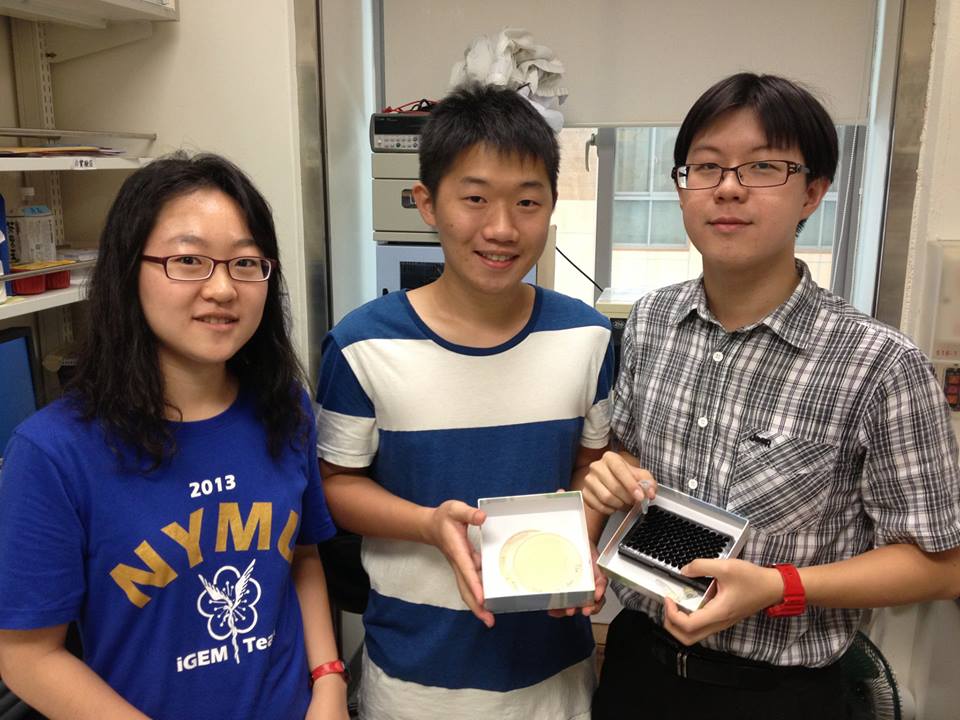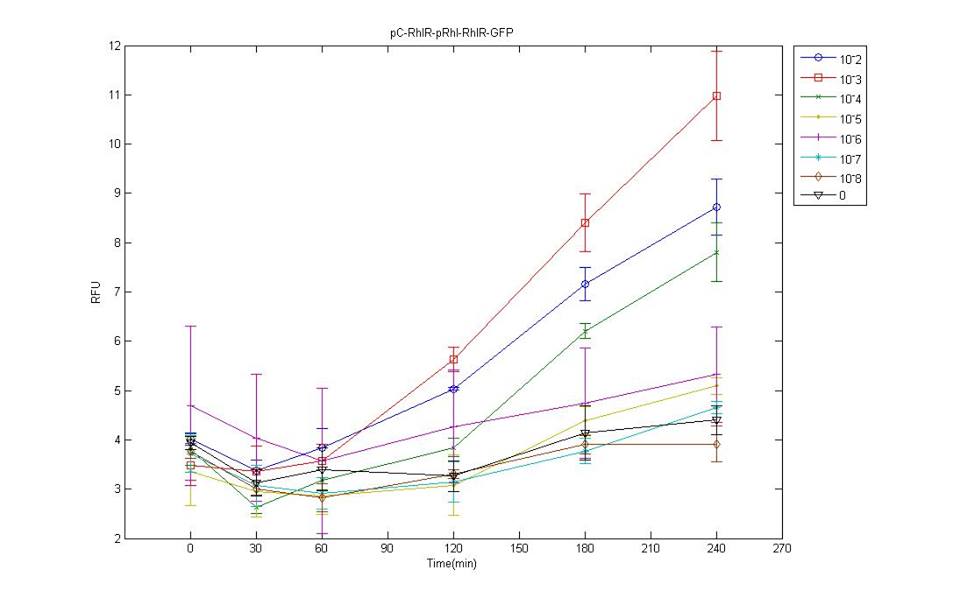Team:NYMU-Taipei/HumanPractice/HumCollab
From 2013.igem.org
| (One intermediate revision not shown) | |||
| Line 13: | Line 13: | ||
! BBa_K1157021 | ! BBa_K1157021 | ||
|- | |- | ||
| - | | [[File:NYMU_Pc_Rhl_GFP.jpg|thumb| | + | | [[File:NYMU_Pc_Rhl_GFP.jpg|thumb|450px]] |
| - | | [[File:NYMU_Rhl_positive_feedback_circuit.jpg|thumb| | + | | [[File:NYMU_Rhl_positive_feedback_circuit.jpg|thumb|450px]] |
|} | |} | ||
Latest revision as of 04:22, 28 September 2013


Collaboration
We cooperated with NTU_Taida iGEM team this year and helped them to characterize their parts (C-4 AHL Biosensers ACE:[http://parts.igem.org/Part:BBa_K1157020:Experience K1157020] & CEA:[http://parts.igem.org/Part:BBa_K1157021:Experience K1157021]) and also analyzed the data. We tested the function of Kii57020 by testing its GFP fluorescence expression. We used ELISA plate reader to read the fluorescence of the constructs under different concentrations of C-4 AHLs. The biosensors are transformed into competent cell E. Coli DH5α cultured overnight and then diluted until OD value=0.1. Then we read fluorescence expression from 0 to 4 hours.
| BBa_K1157020 | BBa_K1157021 |
|---|---|
The results show that as AHL concentration increase, the expression of the downstream gene increase, which indicate that their parts work as expected.
There is the link to NTU-Taida collaboration page:
https://2013.igem.org/Team:NTU-Taida/Human_practice/Collaboration
 "
"











